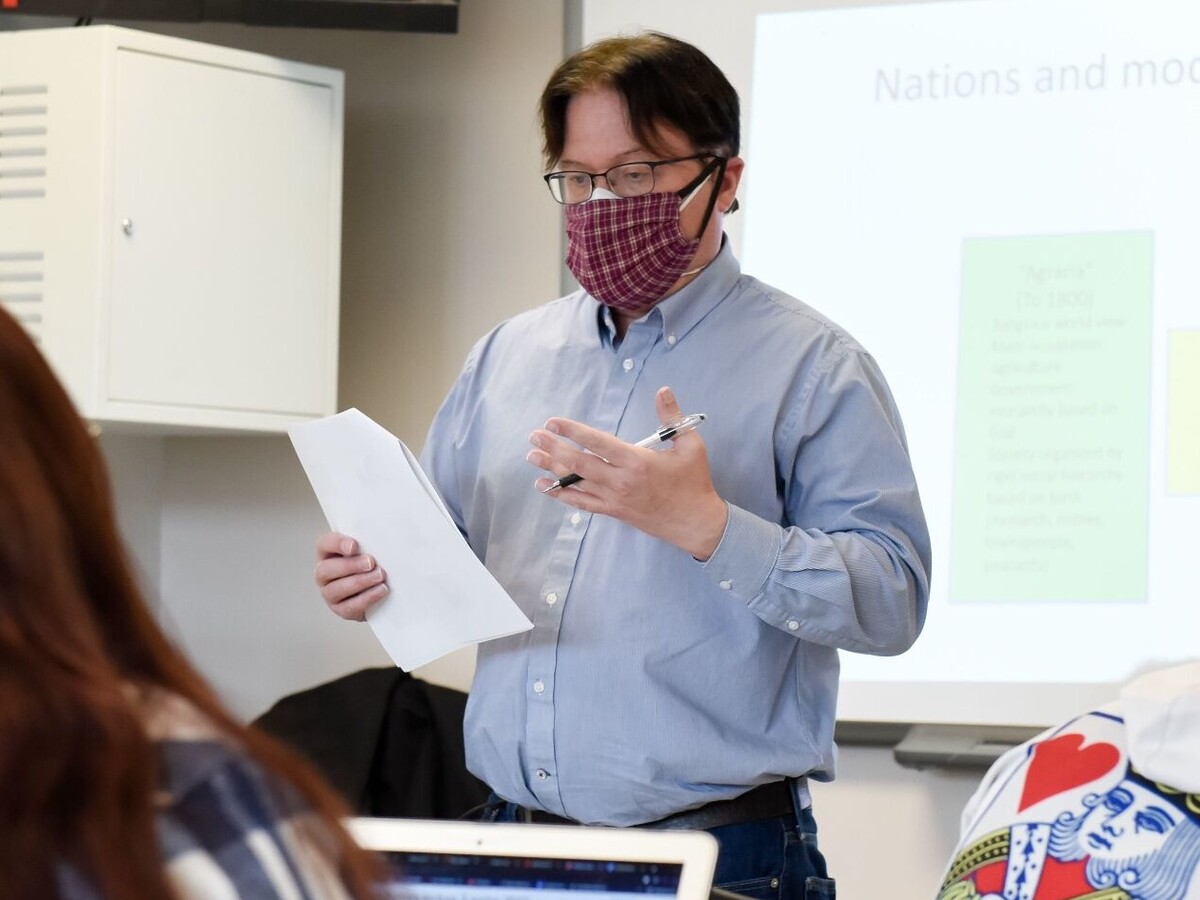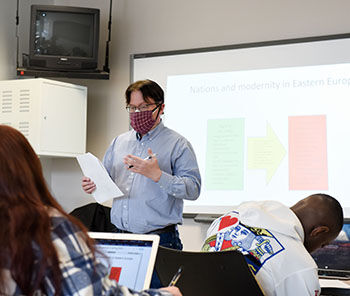Image

If rising tensions in Eastern Europe don’t abate – Dr. William Risch’s students will learn history as it unfolds.
The Ukraine has endured more than its share of war, dominance and struggle for identity. Lately, it’s been in the news with a build-up of more than 100,000 Russian troops at its border. A spar of words between superpowers is fueling fears of confrontation and a third world war.
“I wish things had taken a different path, because war exhausts people. They become embittered,” Risch said. “Some want a military solution to drive out the Russians. But the reality is – the Russians could smash the Ukrainian military with its might because of their sheer numbers and kind of weaponry.”
“There’ve been some war scenarios,” he said, “where Russia takes out the Ukrainian infrastructure in an hour.”
Students in Risch’s Modern Eastern European class couldn’t be in a better position to learn about this crisis. Their professor is an expert on the often-rocky relationship between Ukraine and Russia. In 2011, Risch published a book on the Western Ukrainian city of Lviv after the death of Soviet dictator Joseph Stalin. He recently received a fellowship from George Washington University to finish a second book on events leading to the Donbas War in 2014.
Risch also taught for a year at Omsk State University in Russia. He spent two years working on his dissertation in Lviv, Ukraine, and another two years teaching at Lviv National University.
Junior history major Sean Fulmer of Oxford, Georgia, signed up for Risch’s class to learn about Eastern Europe—a “new frontier” for him. It piqued his interest because he has friends living there.
“If I was some modern philosopher king – I would suggest that the current situation is nothing more than saber-rattling between major powers to justify boosting their defense budgets,” Fulmer said.
“This is not to say the corrupt, autocrat in Russia is an angel either,” he said, “but it’s rather eerie to witness such wide-scale manufacture of consent to what could potentially be a major conflict costing millions of lives.”

Still, Fulmer's excited to study these centuries-old struggles at a time when the Ukraine’s security is again in the crosshairs.
Russia is concerned about Western interference and the possibility of Ukraine joining NATO.
Risch’s new book covers these issues, focusing on protests in 2013 that led to Russian intervention. Spurts of violence, shelling and skirmishes continue to this day, despite an accord signed between the two nations in September 2014.
This is nothing new for Ukraine—a region continually dominated in a tug-of-war by other nations. Russia, Poland, Lithuania, Austria, Romania, Turkey and the old Czechoslovakia have all claimed Ukrainian territory as their own since the 800s. The nation has endured centuries of suffering, including the Soviet-induced famine in the early 1930s that led to the starvation of 4 million people.
Students in Dr. Steven Elliott-Gower’s National Security Policy class are also learning about Eastern Europe but from a different perspective. They’re drawing upon the Ukrainian crisis to play a simulation game called “Russia, NATO and the Baltic States.” It involves a hypothetical buildup of 100,000 Russian troops on the border of Latvia, a NATO country neigboring Russia.
In the game, Russia claims to be concerned about the rights of ethnic Russians living in Latvia. But its real motives are similar to what’s currently happening in the Ukraine, Elliott-Gower said.
Students act as various U.S. officials to avert invasion and reduce tensions. They’re drawing up economic and financial sanctions and reviewing possible deployment of NATO troops.
“Students are weighing the pros and cons of a series of diplomatic, economic and military measures to deter Russian aggression. In the process,” he said, “they’re learning valuable leadership lessons about the complexity of foreign policy decision making.”